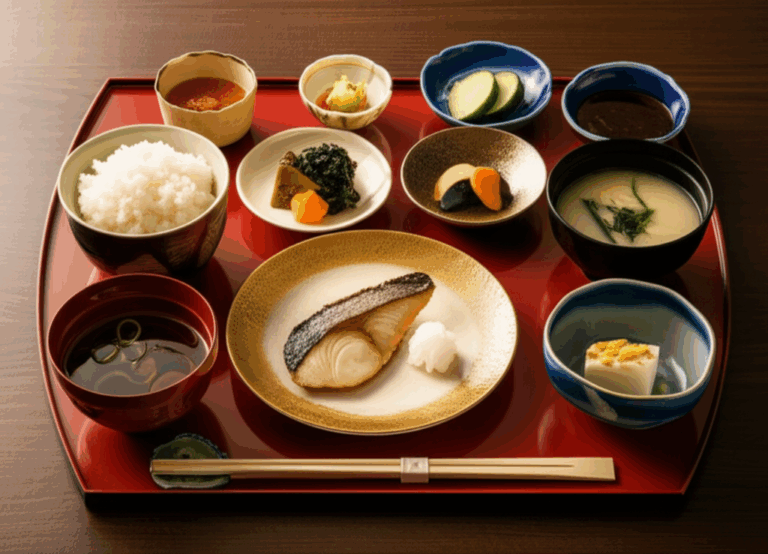Could the secret to improved mental well-being lie in your plate, specifically in the form of a traditional Japanese diet? Emerging research suggests that adhering to a Japanese-inspired eating pattern, known as “Washoku,” may significantly reduce the risk of depressive symptoms. This dietary approach, celebrated for its physical health benefits and contribution to longevity, is now gaining recognition for its profound impact on mental health.
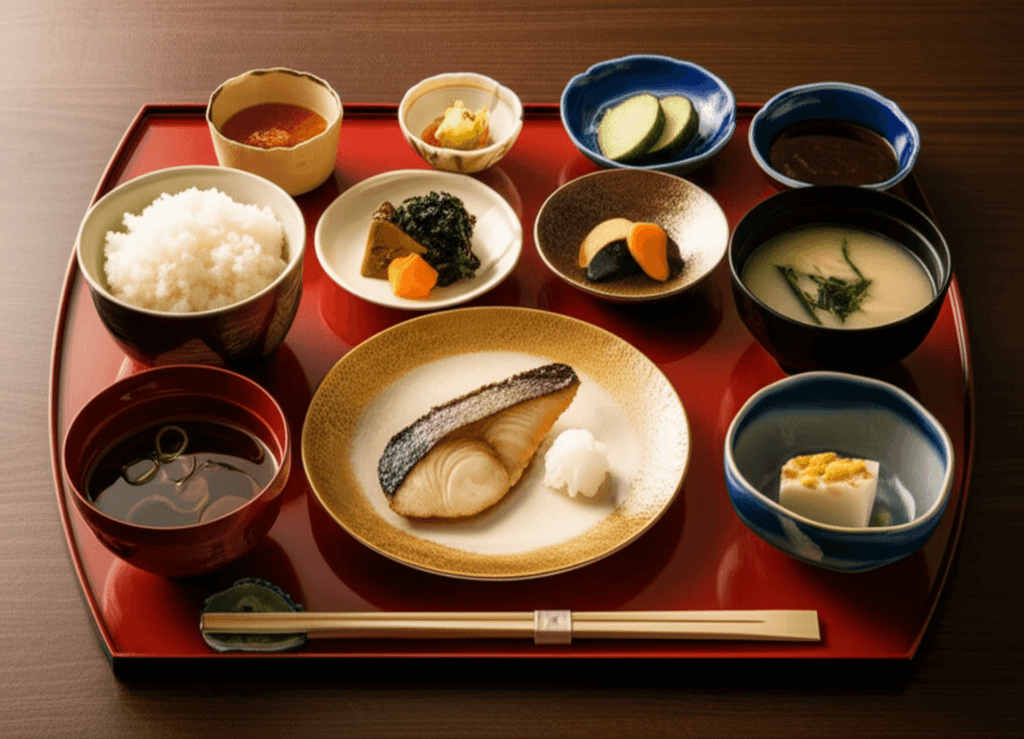
Understanding the Washoku Diet
The traditional Japanese diet, or “Washoku,” is a whole-foods-based eating pattern that prioritizes fresh, seasonal, and minimally processed ingredients. It stands in stark contrast to typical Western diets, which often feature high amounts of processed meats, refined grains, sugary snacks, and fried foods.
Key characteristics of the Washoku diet include:
- Emphasis on Plant-Based Foods: Rich in vegetables (fresh, cooked, and pickled), mushrooms, seaweed, and soy products like tofu, miso, and natto.
- Abundant Fish and Seafood: Fish and seafood are central to the diet, providing lean protein and essential omega-3 fatty acids.
- Staple of Rice: Steamed white rice is a common staple, though modified versions may incorporate minimally processed grains.
- Fermented Foods: Miso soup, natto (fermented soybeans), and pickled vegetables (tsukemono) are regularly consumed, contributing to gut health.
- Green Tea: A common beverage, rich in antioxidants.
- Minimal Processed Foods, Added Sugars, and Fats: The diet is naturally low in unhealthy fats and refined sugars, promoting overall health and potentially aiding weight management.
- Smaller Portions and Mindful Eating: Japanese culture often encourages eating until 80% full, fostering portion control and a more conscious approach to food.
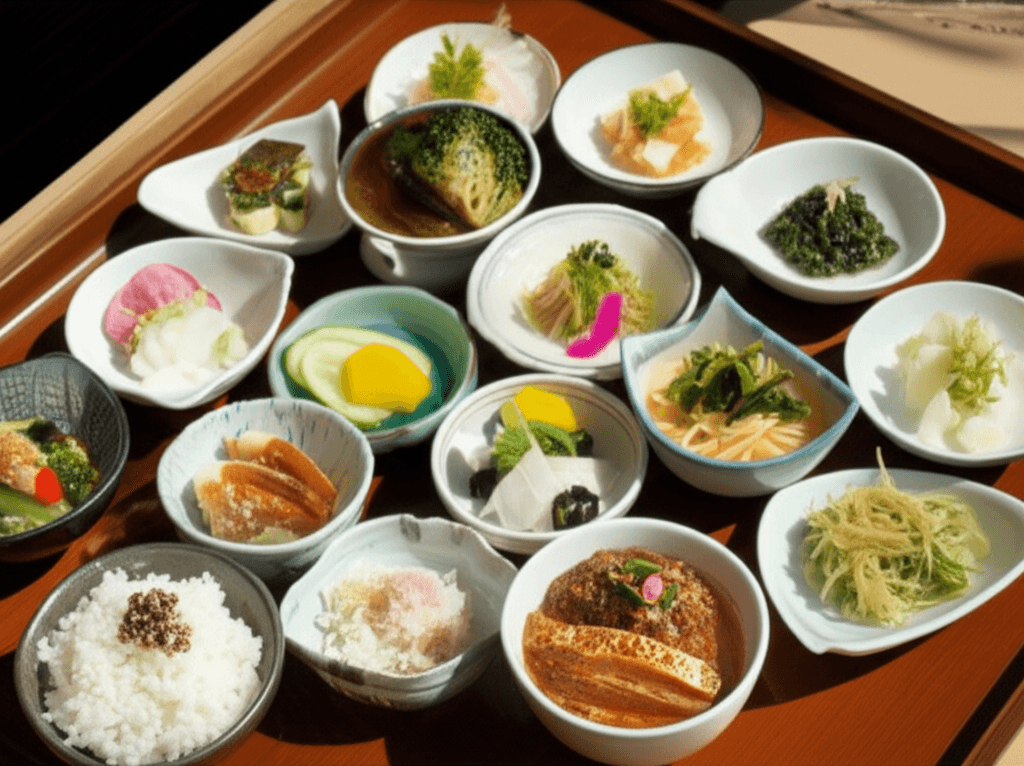
The Research Linking Washoku to Mental Health
A significant cross-sectional study involving approximately 12,500 Japanese working adults explored the association between adherence to traditional and modified Japanese dietary patterns and the prevalence of depressive symptoms. Published in the journal Psychiatry and Clinical Neurosciences, the research revealed a clear inverse relationship: the more closely participants followed a Japanese-style diet, the less likely they were to report symptoms of depression.
Participants were given a “diet score” based on their consumption of various foods. Those with higher scores, indicating greater adherence to either the traditional or a modified Japanese diet, reported fewer depressive symptoms. Specifically, individuals with the highest adherence to the traditional diet were 17% less likely to report depression, while those following a more modern, health-conscious version saw a 20% reduction in risk. This modified diet often included fruits, raw vegetables, and dairy, while reducing salty foods. These findings remained consistent even after accounting for factors like age, sex, and job stress.
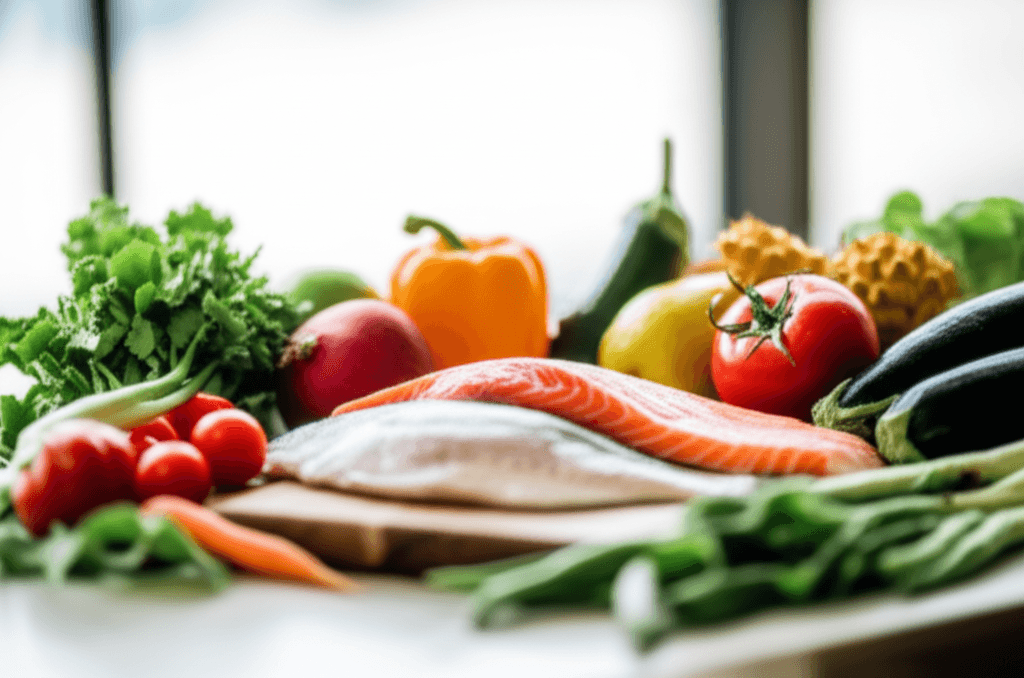
Nutritional Mechanisms Behind the Mental Boost
The protective effects of the Japanese diet on mental well-being are believed to stem from its nutrient-dense composition and the synergistic effects of its components.
Key Nutrients and Compounds:
- Folate: Abundant in seaweed, vegetables, and soy foods, folate is crucial for the synthesis of neurotransmitters like serotonin and dopamine, which play vital roles in mood regulation and emotional health.
- Omega-3 Fatty Acids: Found in oily fish, omega-3s are known for their anti-inflammatory properties and their support for brain function. Higher fish and soy intake has been associated with lower rates of depressive symptoms.
- Antioxidants: Green tea, colorful vegetables, natto, and miso are rich in antioxidants, which help reduce oxidative stress in the brain—a factor implicated in depression.
- Dietary Fiber: From sources like soy, mushrooms, and seaweed, fiber promotes a healthy gut microbiota. The gut-brain axis, which links digestive health to mental well-being, is a significant area of research, with fermented foods playing a role in modulating this connection.
- Umami: The distinctive “umami” taste, prevalent in foods like miso, soy sauce, seaweed, and mushrooms, may contribute to mental stability by reducing heart rate and stimulating the parasympathetic nervous system, promoting relaxation.
- L-Theanine: Green tea contains L-theanine, an amino acid that promotes relaxation without drowsiness, supporting a calm and focused mental state.
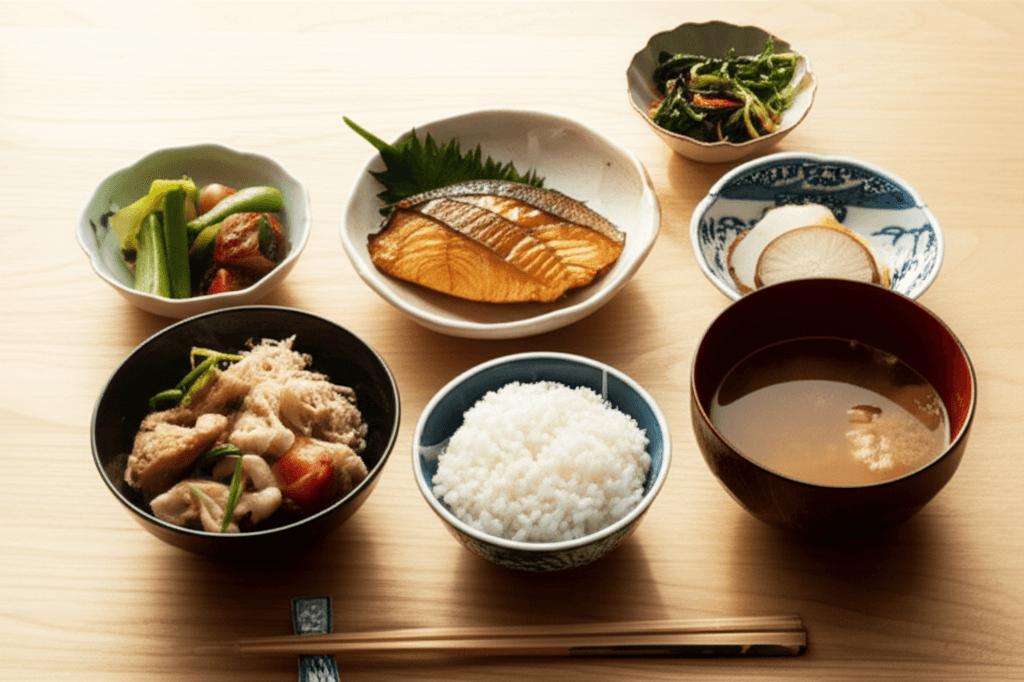
Integrating Washoku Principles into Your Diet
While the study was conducted in Japan, its findings highlight the potential benefits of a balanced, nutrient-rich diet for mental health, regardless of geographic location. It’s not about a complete dietary overhaul overnight, but rather incorporating elements of the Washoku diet into your existing routine.
Practical steps to infuse Japanese-inspired eating into your life include:
- Prioritize Whole Foods: Focus on minimally processed ingredients.
- Increase Fish and Seafood Intake: Incorporate more fatty fish like salmon and mackerel.
- Embrace Vegetables: Add more leafy greens, colorful vegetables, mushrooms, and seaweed to your meals.
- Explore Fermented Soy Products: Include miso soup, tofu, or natto.
- Swap for Healthier Grains: Consider minimally processed grains over refined white rice if desired.
- Hydrate with Green Tea: Make green tea a regular beverage choice.
- Mindful Eating: Pay attention to portion sizes and savor your meals.
While further research is needed to establish a causal link, the growing body of evidence strongly suggests that a Japanese-inspired diet can be a powerful tool in supporting mental well-being, offering a culturally rich and delicious path to a healthier mind.




